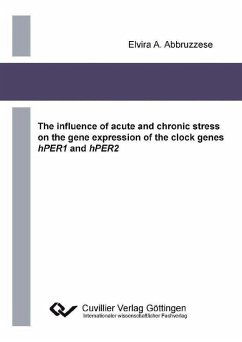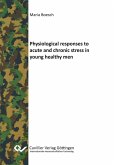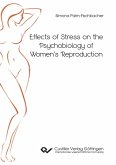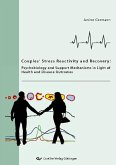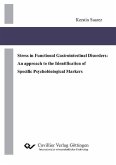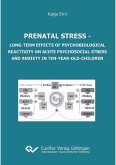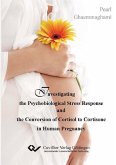Various health problems are associated with the disruption of circadian rhythms. In particular,
psychological disturbances often show disrupted sleep-wake cycles as a symptom,
suggesting a relation between a disrupted circadian clock and mental health problems such
as affective disorders, schizophrenia and addictive disorders. The mentioned vital clockwork
is sustained by specific circadian oscillatory expression of clock genes – which control
themselves via transcriptional/translational feedback loops – and influences behavioural,
biochemical and physiological circadian rhythms. Increasing evidence suggests an
interaction of these so-called clock genes and glucocorticoids. For this reason, we were
interested in the question of whether the cortisol response after awakening is associated with
the gene expression of the clock genes hPER1 and hPER2, in particular hPER1, given that
its DNA sequence disposes of a glucocorticoid-responsive element and is therefore most
likely influenced by glucocorticoids.
Data 1: We investigated thirty-one healthy men aged 20-30 combining microbiological and
psychometric methods. We measured the amount of mRNA of hPER1 and hPER2 on two
consecutive mornings as well as twelve hours later in the evenings of the same days. To
measure the increase of cortisol after awakening, we sampled cortisol levels immediately
after, 30 minutes after and 60 minutes after awakening on both mornings. Additionally,
subjects filled in questionnaires to assess their level of chronic stress. We found an
association between the gene expression of hPER1 and age as well as the increase of
cortisol in the morning, whereas the gene expression of hPER2 seems to be associated
primarily with age and levels of chronic stress.
Data 2: Furthermore, since numerous mental health problems are associated with a
disruption of the sleep-wake cycle, a disturbance of the circadian clock on a molecular level
seems likely. Simultaneously, psychosocial stress is considered as a major factor in the
etiology of several mental health problems. For this reason, we aimed to investigate the
putative cortisol-mediated influence of acute and chronic psychosocial stress on the gene
expression of hPER1 in thirty-one healthy men. Our findings suggest that firstly, acute
psychosocial stress influences the expression of hPER1, and secondly, chronic stress
involves heightened gene expression of hPER1.
Dieser Download kann aus rechtlichen Gründen nur mit Rechnungsadresse in A, B, BG, CY, CZ, D, DK, EW, E, FIN, F, GR, HR, H, IRL, I, LT, L, LR, M, NL, PL, P, R, S, SLO, SK ausgeliefert werden.

